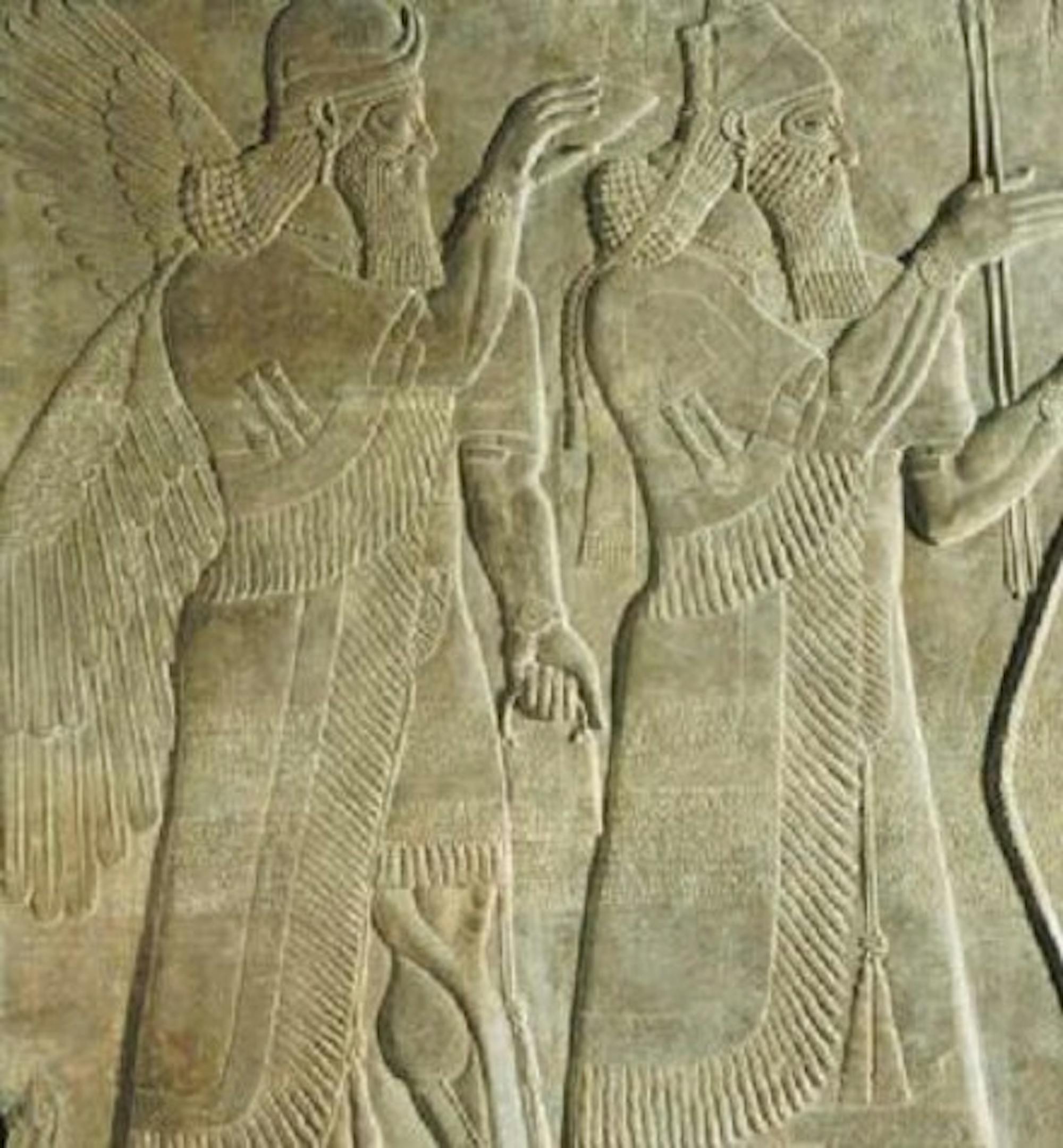In commemoration of the 150th anniversary of their installation in Hanover, the reliefs will be the focus of this collaborative symposium, which, thanks to the sponsorship of the Fanny and Alan Leslie Center for the Humanities, will be free and open to the public. Faculty members from Dartmouth's art history, Jewish studies and religion departments, as well as guest scholars from around the world, will present their scholarship by means of open dialogue, taking advantage of the small size of their panel by hosting more of a discussion than a seminar.
The keynote address, "The Early Exploration of Assyria," will be given in Friday afternoon's session at 4:30 p.m. by the British Museum's Julian E. Reade, and events later in the weekend include lectures by guests from the University of Buffalo, The Casco Bay Assyriological Institute, Bryn Mawr College and the Massachusetts College of Art, as well as Dartmouth. Chair of the art history department Ada Cohen, lecturer of art history and Jewish studies Steven Kangas, and anthropology assistant professor Kamyar Abdi organized this event to encourage interest in Middle Eastern culture among the Dartmouth community.
Cohen eagerly anticipates the event and thinks students with background in Middle Eastern art history and those with little previous knowledge on the subject will appreciate the pieces. "The more you know, the deeper your experience will be," she said.
As for what the general public can take away from the symposium, Cohen explained, "One of my students recently said that when she visited the Louvre, the crowd [went right] to the Mona Lisa, bypassing equally important Mesopotamian monuments, like the Law Code of Hammurabi, which she did not know was there. Next time she's at the Louvre, she'll take more and different paths."
It seems the most interesting connection drawn by the exhibit as well as the discussions and lectures this week is that between the history of Dartmouth's art collection and that of the ancient world represented in the reliefs.
"Not only have they become a piece of Dartmouth history, but they are significant monuments of human history. Dartmouth students are presented with a plethora of occasions to study and comprehend the past, through formal course work, the presence of the Hood Museum on campus, and a variety of events like this symposium. Many realize this in time to benefit [from it]," said Cohen.
The perspectives of several academic disciplines combine to show the many aspects of the reliefs' value. The relics not only provide insight into an ancient distant culture, but also function as a testimony of human propulsion to create art.
"It's really a matter of where your interests lie," said Ben Cox '07. "If you want to see art in terms of visual impact, laws of composition, proportion and so on, you can certainly apply that to the reliefs. If you're more interested in them as cultural relics -- records of a way of life, a way of thinking, and a mode of expression long gone -- then they're absolutely invaluable."
Religion major Harry Huberty '07 said, "The symposium will teach us not only about ancient meanings but also about their evolving history, from their discovery in the mid-19th century to the present, and about the current state of archaeology in Iraq."
Huberty encourages his peers to attend the upcoming events, calling them a "great chance for students, especially students considering careers in academia, to see scholarship actually 'happen.'"
The symposium will occur in on Friday, Nov. 3 and Saturday, Nov. 4 in the Loew Auditorium. A schedule of the events is available on the Hood Museum's website.




